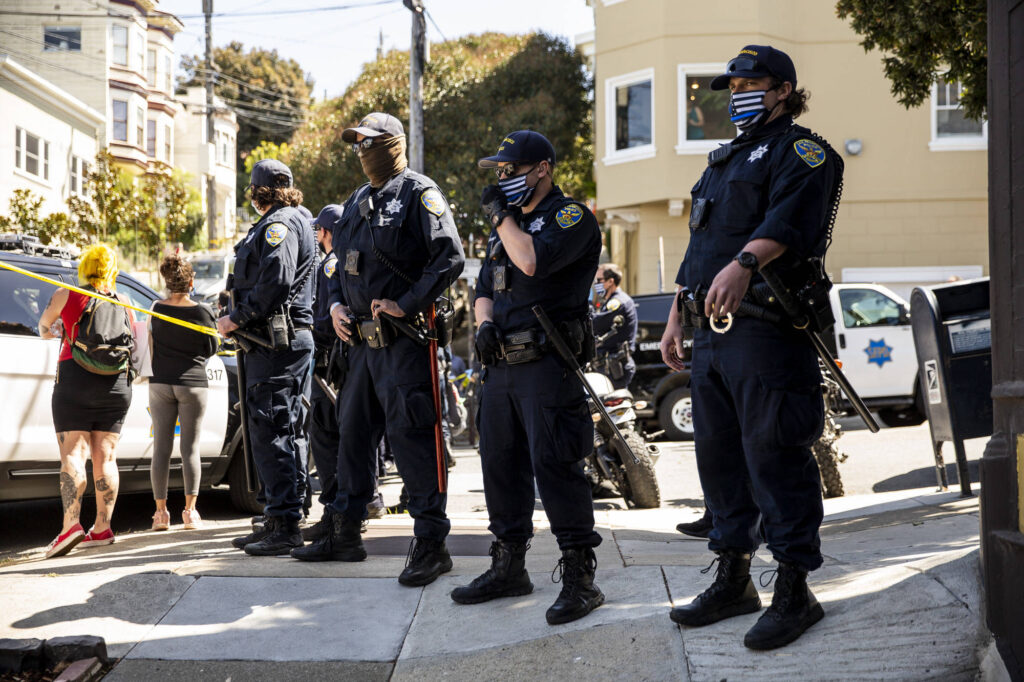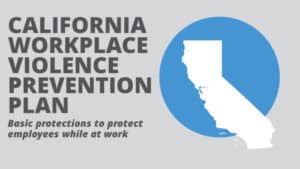Written by: Christopher Dolan and Cristina Garcia
This week’s question comes from Roger who writes,
Q: “I have been following the news about the protests in Portland, Oregon. Protesters have reported arrests by federal law enforcement officers in unmarked vehicles and without visible badges. I personally have participated in peaceful protests and find this troubling. It seems counterintuitive to allow individuals in plain clothes and in unmarked vehicles to arrest you. Further, how is one supposed to know that they are law enforcement officers or identify the agency they work for if they are not wearing badges? Are federal law enforcement officers required to identify themselves when making arrests?”
A: Dear Roger,
that is a great question. Currently there is no federal statute requiring federal officers to disclose their identity or their agencies of affiliation. For this reason, many federal law enforcement officers will simply identify themselves as “federal law enforcement.” As you mentioned, this is concerning as citizens engaged in peaceful protests would be unable to identify the officer or the agency that apprehended, detained, or arrested them.
Many legislators became alarmed as news reports poured in from Portland, Oregon reporting several arrests made by federal law enforcement officers in unmarked vehicles and without visible badges. For this reason, two new bills have been introduced to Congress in an effort to reach transparency. The new bills would require federal law enforcement officers to identify themselves and it would prohibit the use of unmarked vehicles when apprehending, detaining or arresting civilians when engaging in crowd control which includes demonstrations, protests and riots.
On June 8, 2020, the Senate introduced Senate Bill 3909 – Law Enforcement Identification Act and on June 11, 2020, the House of Representatives introduced an identical bill which reads in relevant part:
“(b) REQUIREMENT. – Each Federal law enforcement officer or member of an armed force who is engaged in any form of crowd control, riot control, or arrest or detainment of individuals engaged in an act of civil disobedience, demonstration, protest, or riot in the United States shall at all times display identifying information in a clearly visible fashion, which shall include the Federal agency, last name, and badge number of the Federal law enforcement officer or the armed force, last name, and rank of the member of an armed force, respectively.”
If the above bill is passed, it would require all on-duty federal law enforcement officers to clearly display their agency name, their own last name and their identification number. This would allow citizens to know which agency is arresting them. It would also create a sense of accountability as the citizens arrested or witnessing arrests would be able to identify the officer and agency, which would facilitate their ability to report any abuses or misconduct to the correct agency.
The Senate has also introduced Senate Bill 4220 – Preventing Authoritarian Policing Tactics on America’s Streets Act, which would also require all federal law enforcement officers to identify themselves when engaging in any form of crowd control. However, this bill takes it one step further by prohibiting federal law enforcement officers or members of an armed force from taping over or otherwise obscuring or concealing their identification information. Further, federal law enforcement officers would also be prohibited from using an unmarked vehicle for apprehension, detention or arrest of civilians while the officer or member is engaged in any form of crowd control which includes demonstrations and protests.
The purpose of this bill is to limit the use of federal law enforcement officers for crowd control. The federal government has the authority to use federal law enforcement officers to protect federal property that is owned or occupied by the federal government. However, given that in Portland many federal law enforcement officers were reported making arrests several miles away from federal property, the Senate has introduced Senate Bill 4220 to place restrictions on federal law enforcement. Senate Bill 4220 provides that,
“…a Federal law enforcement officer or member of an armed force may only be authorized to perform any form of crowd control, riot control or arrest or detainment of individuals engaged in an act of civil disobedience, demonstration, protest or riot on Federal property or in the immediate vicinity thereof, which shall include the sidewalk and the public street immediately adjacent to any Federal building or property.”
This bill would restrict federal law enforcement officers from arresting or detaining citizens who are engaged in peaceful protests who are not on federal property or in the immediate vicinity of federal property.
Although there is no federal statute requiring federal law enforcement officers to identify themselves at this time, this can change if the Law Enforcement Identification Act and the Preventing Authoritarian Policing Tactics on America’s Streets Act are enacted.










